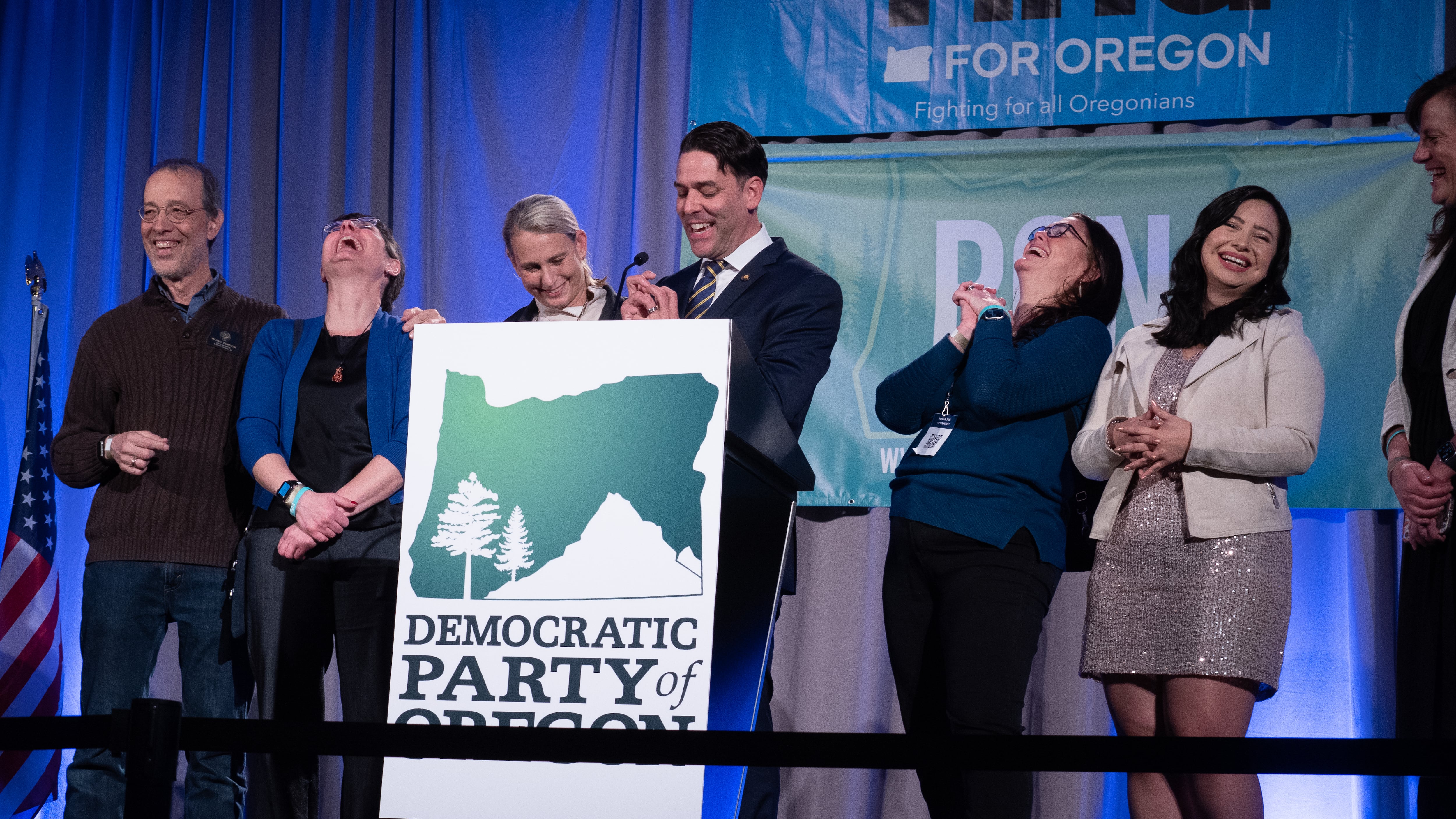The Oregon Secretary of State’s Office fined the Democratic Party of Oregon $15,000 for being tardy in changing the name on a $500,000 campaign contribution that came from Nishad Singh, former director of engineering at bankrupt cryptocurrency firm FTX.
The state had proposed a $35,000 fine but slashed the amount by 57% as part of a settlement with the Democratic Party, reached last night because neither side wanted to go forward with a hearing today, the Secretary of State’s Office said in a statement.
“The parties wish to resolve this matter without a hearing and in a manner that reduces related costs and expenses, as well as serves the public interest in past and future transparency in campaign finance contribution records,” the settlement said.
The Democratic Party of Oregon originally said that the $500,000 contribution, made Oct. 4, came from crypto infrastructure firm Prime Trust. The deadline for reporting that transaction was Oct. 11, but the DPO didn’t change the name to show that the contribution actually came from Singh until Oct. 31.
The settlement amount, though discounted, will do more to curb any future noncompliant behavior by the DPO than going to court, acting Secretary of State Cheryl Myers said in a statement. (It’s worth noting that the settlement was the first substantive act under Myers following the resignation of former Secretary of State Shemia Fagan in a moonlighting scandal.)
“While the financial penalties are significant,” Myers said, “the most important part of the settlement are the numerous oversight requirements the DPO has agreed to, including spot checks by Elections Division investigators, to ensure compliance with all state campaign finance laws.”
The DPO lauded the settlement, too. “The DPO chose to reach this settlement so the party can fully focus without even the slightest distraction on its main priority—electing candidates throughout the state who will fight for Oregonians’ health care, jobs and civil rights,” DPO executive director Brad Martin said in a statement. “The DPO accepts this settlement and welcomes today’s closure of a case that boiled down to an individual lying about a donation and the DPO making the correct information available as soon as it learned about the donor’s lie.”
Oregon campaign finance expert Dan Meek says the Secretary of State’s Office erred in settling the matter and reducing the fine because there are no mitigating circumstances for the penalty.
“This is favorable treatment for DPO,” Meek said in an email. “When the People’s Rebate petition committee similarly made a correction to the identity of a donor of $50,000 in 2022, the secretary of state imposed the full 10% of $5,000 and refused to recognize any mitigating conditions.”
The People’s Rebate was a 2022 initiative that sought to tax large businesses at a higher rate and send the money straight to Oregonians.
The DPO had contested the proposed $35,000 fine because federal investigations of FTX “could result in a finding invalidating this proposed penalty under the clearly established fraud standard,” DPO attorney Dayna Underhill said in February. “In light of Singh’s fraudulent conduct, and the multiple ongoing investigations, the proposed fine is inappropriate and should not be issued. At a minimum, any proceedings regarding this proposed penalty should be held in abeyance until the investigations are complete.”
Oregon law says that campaign finance fines may be lowered if the penalty is the direct result of “clearly established fraud, embezzlement, or other criminal activity” against a party or candidate.
“This condition does not apply here,” Meek wrote, “because there was no fraud or other criminal activity against the DPO, as determined by law enforcement or any other way. The potential criminal activity was that Singh hid that true source of the contributions made by him. Singh was not prosecuted for making contributions in the name of Prime Trust. If the violation had been that DPO reported the contribution as coming from Singh when in fact it came from Alameda Research of FTX, then the mitigation circumstance would apply. But that is not the circumstance.”
Alameda Research was an affiliate of FTX.
FTX founder Sam Bankman-Fried and his employees were among the biggest political donors in the country during the 2022 election. Federal prosecutors have accused him of making millions of dollars in contributions in other people’s names using cash from customers’ accounts at FTX. Federal prosecutors say Bankman-Fried and others used “straw donors” to buy influence. A straw donor is someone who makes a contribution in someone else’s name to skirt limits on political giving.

